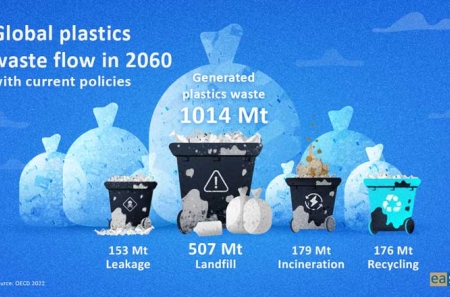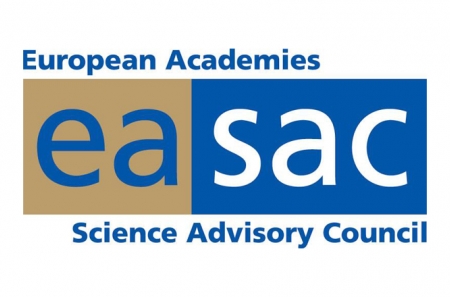
Keith Jeffery: A Historian's Perspective on Open Access
16 November 2013Keith Jeffery MRIA is a Professor of British History in Queens University Belfast. His research encompasses a wide range of topics in Irish, British, and British imperial history. A particular emphasis has been on Ireland and the First World War, which was the subject of his Lees Knowles Lectures.
Scholarly research is not a private matter. It effectively does not exist until it is published. And no scholar can object to open access (OA) in principle, since the free sharing of research and information is fundamental to advance in any discipline. All scholars working in university-level institutions in Ireland, North and South, moreover, are to a greater or lesser extent sustained by public money. Indeed, it is hard to imagine any scholar in the humanities (and most other disciplines) not making use of publicly-funded facilities—libraries, archives and so on—so the considerable public investment in scholarship, and its infrastructure, must be matched by the results of that scholarship being made available as freely and abundantly as possible.
But there is an economic cost to the process itself of publishing scholarship. The OA debate has to a great extent been driven by perceptions that commercial publishers—especially those of science journals—have been benefitting disproportionately from the publication such scholarship. For example, commercial publishers have been charging university libraries increasingly high subscriptions for journals containing material, which is the result of publicly-funded research, provided by individual scholars at no cost to the publisher. Much of the discussion has focused on a largely science research-publication model almost entirely based on journal articles, and in areas where research findings have a high degree of immediacy. This is very different from the situation in the humanities generally, and in history in particular.
There is a very ‘mixed economy’ in the publication of historical scholarship. The majority of research publication is not in journals. In the UK’s 2008 Research Assessment Exercise, only 36% of the history submissions were of journal articles, the remainder being monographs or volumes of essays. Humanities research, too, generally has a much longer shelf life than that in the sciences. It is not at all unusual to find historians citing work published ten years, twenty years or even longer ago. In these circumstances, the benefits of absolutely immediate OA are less apparent than sustained and reliable long-term archival OA. Involved in all this publication (and this applies across all disciplines), there is also a lot of unpaid academic labour in editorial work and the peer-review process, which is essential to maintain academic standards.
There is a further, technical dimension to the issue. Both the Irish and UK definitions of OA require unrestricted online access to text, permitting (as the Irish definition lays down) ‘any users to read, download, copy, distribute, print, search, or link to the full texts of these articles, crawl them for indexing, pass them as data to software, or use them for any other lawful purpose’. The crucial provisions here are those involving search functionality, and the provision of links to full texts. It is not just enough to let’s say scan the text concerned and post a PDF of it. Full online publishing—perhaps involving providing text in multiple electronic formats, certainly involving the embedding of digital object identifiers in text, and so on—poses particular (and expensive) challenges to individual scholarly journals.
The journal Irish Historical Studies, the leading Irish history journal, is currently grappling with the challenge of OA demands, which threaten the very existence of the journal. If, under a mandatory OA policy (as currently envisaged in Ireland and the UK), we are required immediately to provide free access to the material in the journal, why should librarians or individuals continue to subscribe to the journal? Over the years we have deliberately kept our subscription low, precisely in order to make the journal as accessible as possible. (Currently our institutional subscription is a modest €60/£55.) This may work to our advantage, though we may need to raise subscriptions to meet the costs of the full online publication required to comply with the impending OA regimes being applied in Ireland and the UK. Subscribers, too, may also be prepared to pay for what is known as ‘grey matter’—book reviews, review articles, agendas for research, discipline news and information—which is not (so far) covered by OA.
One of the ironies of OA is that the costs of implementing it will inevitably suck resources away from the ‘core business’ of researching, writing, assessing and publication of scholarship. Irish Historical Studies may survive these challenges, but first-class Irish historical scholarship is also disseminated in numerous peer-reviewed learned society journals—Peritia, Eighteenth-Century Ireland, The Irish Sword, to name a few—not to mention a host of local history society publications. Who is to help them move towards OA? Here, there could be a role for the Royal Irish Academy, which has a high level of responsibility to defend the vitality and diversity of research publication in Ireland. Could the Academy, for example, help devise a technical model for online publication meeting OA requirements, which could freely be shared with individual journals? The original aims of the RIA included ‘the encouragement of discussion and debate between scholars of diverse backgrounds and interest’. Perhaps the moment has come to reclaim for not-for-profit public institutions, like the Academy, a greater role in the facilitation of that discussion and debate through open access publishing.
About This Series
In Autumn 2013, the Academy ran an ‘Open Access’ online opinion series driven by contributions from MRIA and staff. Each piece offered a different personal perspective on the opportunities and challenges brought about by developments in open access to the practice of research and scholarship. The series ran from 13 November to 23 November.



